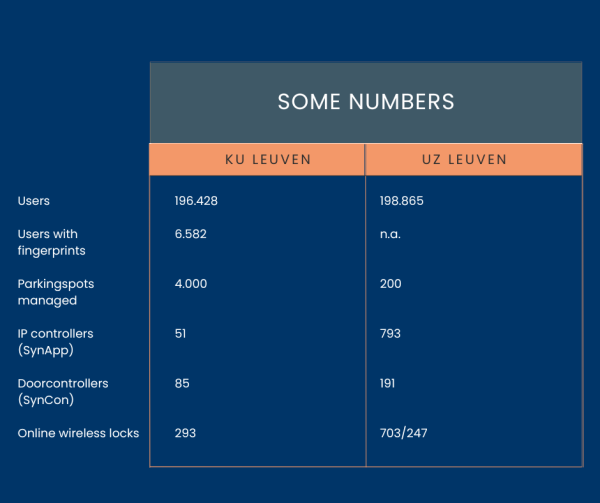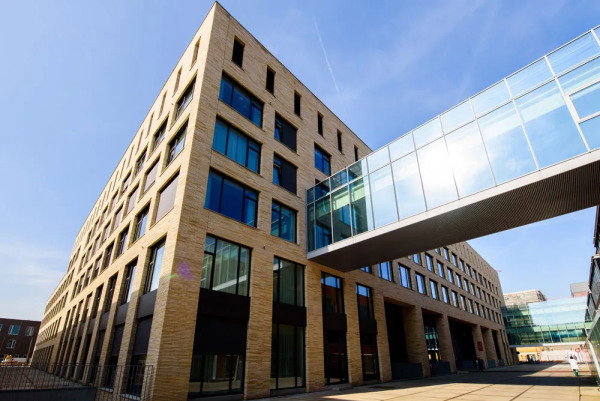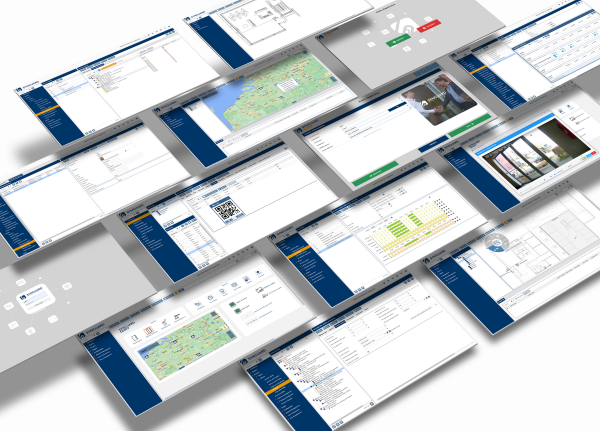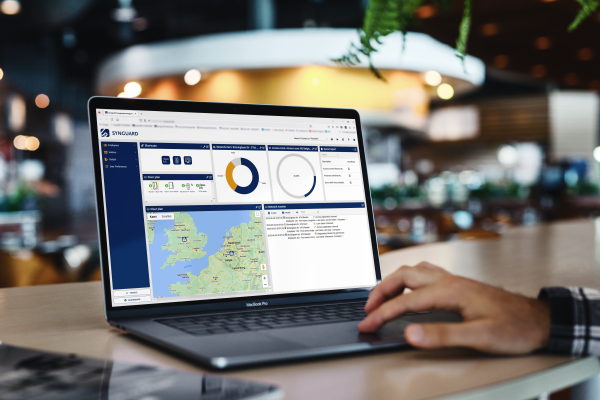Unlocking Security: How KU Leuven and UZ Leuven Enhanced Access Management
In the heart of Leuven, Belgium, lies a nexus of innovation and care - KU Leuven and UZ Leuven. These institutions, with their rich histories and commitments to excellence, have embarked on a journey to boost their security infrastructure. Let's delve into how they achieved this feat with the help of Synguard.
UZ Leuven: Pioneers in Medical Excellence
For over 85 years, UZ Leuven has been at the forefront of providing cutting-edge medical care. With four campuses catering to the needs of patients, it stands as one of Belgium's largest hospitals, housing 1,995 beds and employing over 8,800 dedicated staff members. The fusion of research, training, and multidisciplinary patient care underscores its commitment to continuous improvement and innovation.
KU Leuven: A Pillar of European Education
Established in 1425, KU Leuven stands as one of Europe's oldest and most esteemed universities. Boasting a student body of 60,000 and over 20,000 employees, it's not just the largest university in Belgium, but a beacon of academic brilliance across the continent. With 15 faculties spread across 10 locations in Flanders, KU Leuven is a bastion of research and learning, shaping the minds of tomorrow.
Overview of the solution
Understanding the critical need for robust security measures, both KU Leuven and UZ Leuven turned to Synguard. This comprehensive solution, tailored to their specific requirements, manages access control seamlessly across their campuses. With a staggering number of users and access points, Synguard provides a centralized platform for efficient management and monitoring.
The software runs on a virtual server at the KU Leuven. The software currently manages more than 200.000 active persons of which +/- 15.000 are used for the UZ. The main elements of this solution currently consist of:
- Link AIM (AD Directory/free fields). Every new employee or other change of persons in AIM is automatically forwarded to our SynCore environment (central software of Synguard), including the badge number and the level of authorization for that person.
- Use of MIFARE Plus and MIFARE/DESFire badges encrypted by KU Leuven's encryption keys. KU Leuven and UZ Leuven program their badges themselves with these key(s).
- Access control at UZ Leuven with:
- RS485 readers managed by centrally located door controllers
- IP readers for certain general accesses
- Aperio wireless door fittings for emergency doors
- Control of the lifts via RS485 readers/Door controllers
- Zone control for the sensitive departments
- Integration of Deister and TRAKA key cabinets.
- Integration of XID badge printers from the badge printing/programming application .
Why access management?
Campus access management was introduced 20 years ago for certain zones where a limited number of people were allowed to enter. According to the UZ, access management has always been there but via a key system. Most staff members had a key that made it very difficult to determine who was allowed to have access where and when.
If a problem arose, it was not possible find out who was in the building or room. So, access management has evolved from a 'nice to have' to an essential part of any building.
For the UZ, the creation of a badge and the linked access in combination with the controling effect is extremely important in the daily flow of people on campus. For certain departments within the campus, access management has become crucial from a security point of view. E.g. the psychiatric ward where, based on the access management, it is determined who can move in and out freely and which zones must be closed off.
KU Leuven and UZ Leuven choose Synguard
When KU Leuven issued a call for tenders for a new access control system in 2013, the UZ was asked whether they might also be interested in participating in this new story. Even though the previous access management system could be improved, it was not a must for the UZ Leuven to think of a new system. They did not immediately see how a completely new system could solve the limitations in terms of configuration and technical maintenance, among other things. However, the limitations of the old system did have an impact on its operation.
Based on requirements, the people at the UZ made a calculation of what would be most advantageous. All tracks were examined. What was done with new construction projects? What was done with the existing access control system? Are we going to keep it or also replace it? The conclusion was that it would be more advantageous to transfer both the existing readers and the readers for the new building to a new system. Since there was already talk of replacing the existing MIFARE Classic system with the more secure DESFire system, the choice was made to replace the access control system together with the KU Leuven.
How did the installation proccess go?
Because there was no initial need or demand for renewal of the access control system, such a large-scale project required the necessary preparation time. The UZ therefore made the choice to start with 2 new construction projects that were already planned for implementation. Synguard was first called in as a partner for those projects.
In this installation process, the demand quickly returned for own management of installation and execution because of continuous changes and more flexibility.
Here too, UZ Leuven indicates that the expertise and elaboration of the project have been impressive. In no time at all, the software was installed on the network of the UZ. The people from Synguard visited the UZ on two occasions to explain how the cabling and hardware products work and from that moment on, the UZ was able to carry out the necessary work itself or have it carried out.
A strong point are the very extensive "application notes" that make that many of the questions there are already answered. And you can extend that to the support department of Synguard. Because many matters are discussed beforehand and translated into working documents, support can be reduced to a minimum and the customer also knows that if there are questions, they will always be answered immediately and accurately by one of the experts.
What is there now?
Today, KU Leuven and UZ Leuven boast state-of-the-art access management systems, managing thousands of users and access points with ease. From IP controllers to wireless locks, the infrastructure is designed to adapt to the evolving needs of these dynamic institutions. Visitor management, integration with key cabinets, and centralized management further enhance the security landscape.
What does the future bring?
As KU Leuven and UZ Leuven continue to grow and evolve, the need for flexible and scalable security solutions remains paramount. With ongoing expansion projects and the incorporation of new facilities, Synguard ensures that security is never compromised. By entrusting the institutions with the encryption keys, Synguard empowers them to maintain control and security over their systems.
In conclusion, the collaboration between KU Leuven, UZ Leuven, and Synguard exemplifies a commitment to excellence and innovation in security. By embracing Synguard, these institutions have not only fortified their campuses but laid the foundation for a safer and more secure future.







